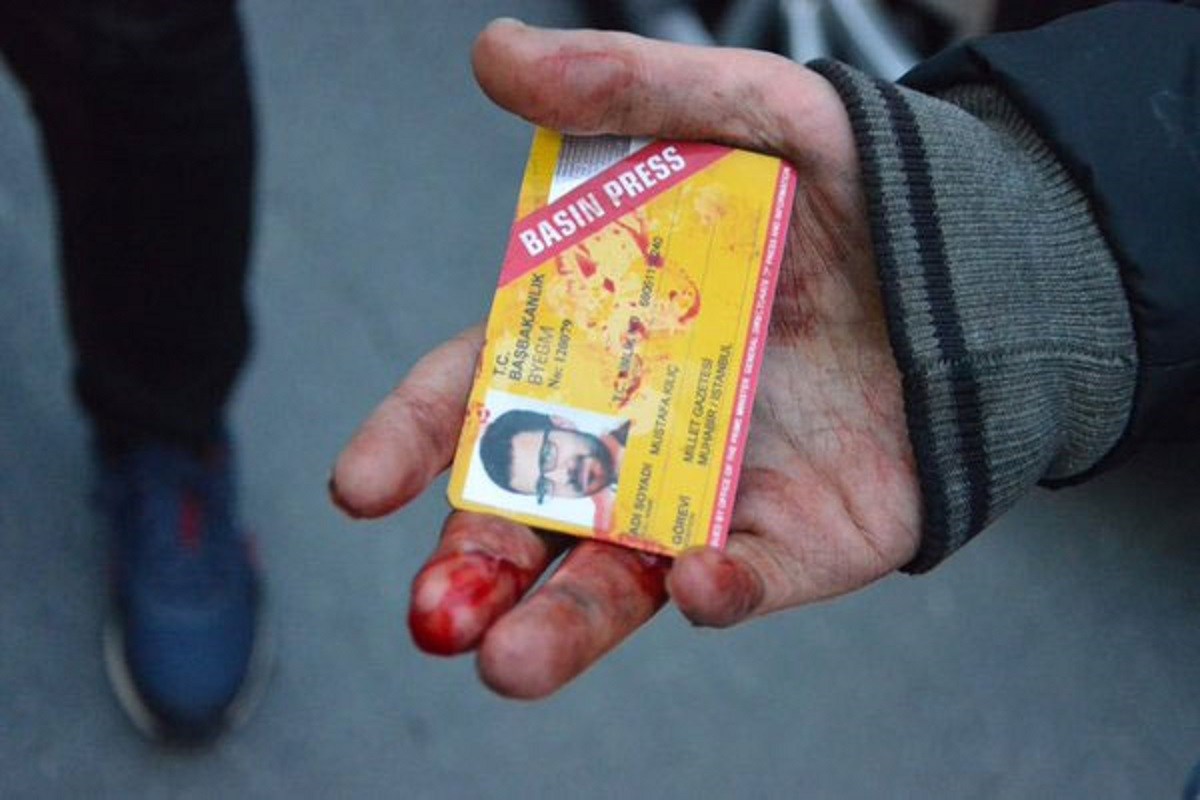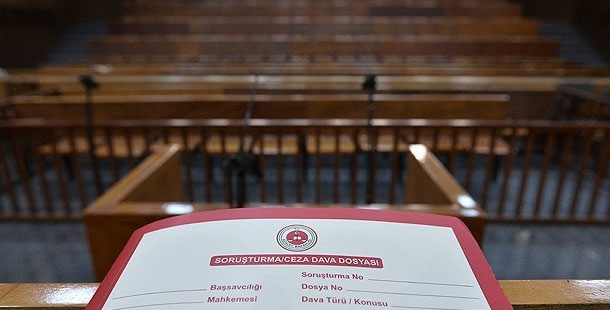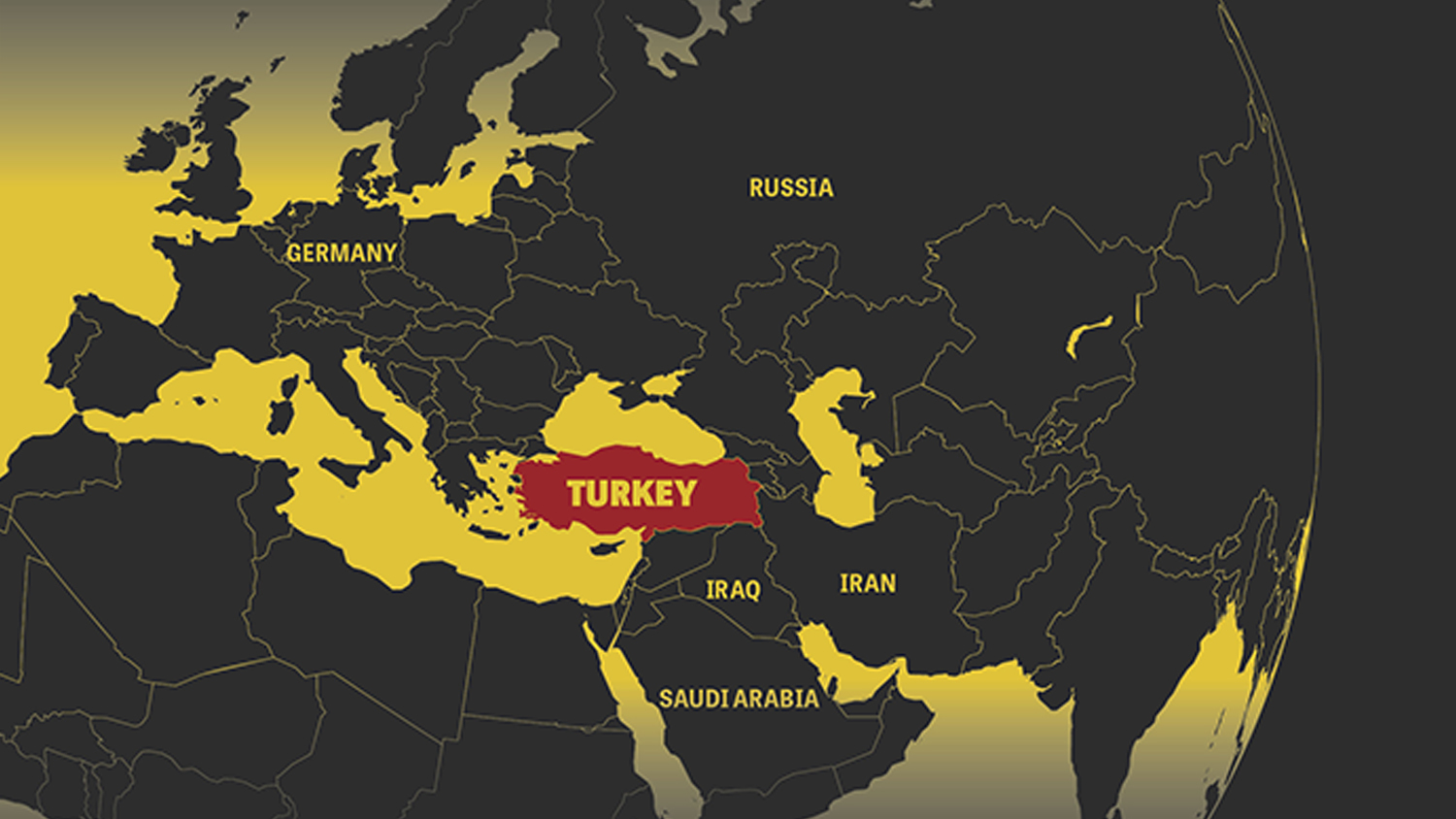[dropcap size=big]I[/dropcap]t is becoming more and more clear Turkey’s justice system is a broken one. Decisions are arbitrary and entirely political. The crackdown on journalists is a case example. Today, in the wake of of Press Freedom Day 2018, there are 192 journalists under arrest in Turkey, 62 who have been convicted, and a further 142 are wanted by the police. 189 media outlets have been shut down by emergency decree, and tens of thousands of journalists dismissed from their jobs. Journalists are persecuted without substantial evidence of wrongdoing. Court decisions are inconsistent and can be completely ignored, with no viable recourse for appeal. It is no wonder that Turkey was placed at 157 out of 180 countries in the recent RSF Press Freedom Index.
[authorbox authorid=”26″ ]
Warrants have been out for arrest, lengthy pre-trial detentions utilised, and convictions declared for journalists with little to no evidence. Vague anti-terrorism laws associate press freedom with working for the PKK or FETO. Such arbitrary decisions have been exemplified recently with the trials of Zaman and Cumhuriyet journalists. Nine Zaman journalists are facing life imprisonment and another 20 facing seven to 15 years for ‘membership of a terrorist organisation’. These accusations are purely based on articles the journalists wrote before Zaman was shut down via emergency decree. The decision is expected soon. The Cumhuriyet trials concluded last month, seeing 14 staff members convicted on terrorism charges, sentenced to up to eight years imprisonment. The ‘evidence’ was writing and editing articles, or simply drawing cartoons. And earlier this year, journalists were arrested and detained simply for criticising the Afrin operation on social media.
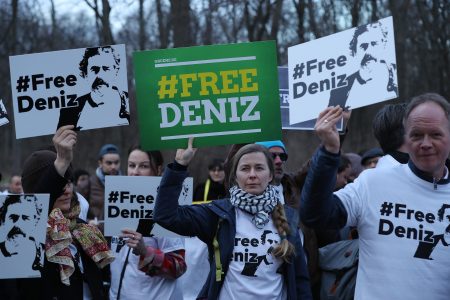 In addition to being unevidenced, court decisions regarding journalists – and of those persecuted in Turkey generally – are inconsistent and completely political. For instance, on February 16th this year, the Istanbul High Criminal Court ruled that German journalist Deniz Yücel be freed after spending a year in pre-trial detention for ‘PKK propaganda’ and ‘supporting FETO’. Before his release, Erdogan repeatedly claimed that Yücel was clearly a terrorist and would not be freed “so long as he was president”. The prosecutor sought 18-years imprisonment. But pressure mounted from the international community, and just a day after German Chancellor Merkel met with Turkish Prime Minister Binali Yildirim, Yücel was indeed freed. He himself noted that “neither my jailing nor my release today is in accordance with the rule of law”.
In addition to being unevidenced, court decisions regarding journalists – and of those persecuted in Turkey generally – are inconsistent and completely political. For instance, on February 16th this year, the Istanbul High Criminal Court ruled that German journalist Deniz Yücel be freed after spending a year in pre-trial detention for ‘PKK propaganda’ and ‘supporting FETO’. Before his release, Erdogan repeatedly claimed that Yücel was clearly a terrorist and would not be freed “so long as he was president”. The prosecutor sought 18-years imprisonment. But pressure mounted from the international community, and just a day after German Chancellor Merkel met with Turkish Prime Minister Binali Yildirim, Yücel was indeed freed. He himself noted that “neither my jailing nor my release today is in accordance with the rule of law”.
Showing just how inconsistent Turkey court decisions are, within hours of Yücel’s release another court had convicted six journalists who were facing similar accusations. They were sentenced to life imprisonment. This included Nazli Ilicak, Yakup Şimşek, Fevzi Yazıcı, Şükrü Tuğrul Özsengül, Ahmet Altan and Mehmet Altan. Mehmet Altan had been arrested and kept in pre-trial detention since September 2016. In early 2018, the Turkish Constitutional Court ruled that Mehmet Altan be released as this pre-trial detention had violated his freedom of expression and liberty. Despite the binding nature of Constitutional Court decisions, the lower courts ignored this. The European Court of Human Rights had to intervene, upholding that Mehmet Altan’s rights had been violated and ordering compensation of 21,500 euros. Although significant in showing how Turkey’s judicial system is broken, this was viewed as too little too late.
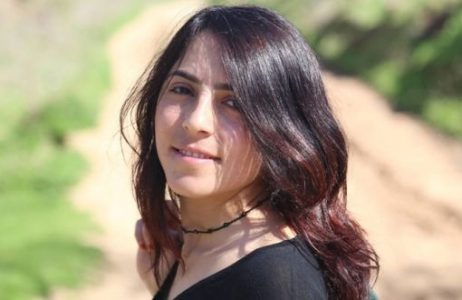 Moreover, others who are not able to garner international support are facing this same arbitrary judicial system. In 2017, there were numerous cases of journalists being released via court decision only to be immediately rearrested. For example, Meltem Oktay of the pro-Kurdish Dicle News Agency (DİHA) who was detained for supposed PPK membership and propaganda. In April 2017, she was released by the Mardin Heavy Penal Court, but within days was re-arrested by the Edirne High Criminal Court which upheld the propaganda charges. She was given two years and four months imprisonment, and remains in the Gebze Female Prison. Then there is the case of Ayşenur Parıldak from Zaman, arrested in August 2016 for alleged FETO membership. In May 2017 she was released by an Ankara Court, but then rearrested just hours later. After facing sexual assault and solitary confinement during pre-trial detention, she was sentenced to seven years and six months imprisonment.
Moreover, others who are not able to garner international support are facing this same arbitrary judicial system. In 2017, there were numerous cases of journalists being released via court decision only to be immediately rearrested. For example, Meltem Oktay of the pro-Kurdish Dicle News Agency (DİHA) who was detained for supposed PPK membership and propaganda. In April 2017, she was released by the Mardin Heavy Penal Court, but within days was re-arrested by the Edirne High Criminal Court which upheld the propaganda charges. She was given two years and four months imprisonment, and remains in the Gebze Female Prison. Then there is the case of Ayşenur Parıldak from Zaman, arrested in August 2016 for alleged FETO membership. In May 2017 she was released by an Ankara Court, but then rearrested just hours later. After facing sexual assault and solitary confinement during pre-trial detention, she was sentenced to seven years and six months imprisonment.
Detained journalists have no viable options for appeal. As shown, Constitutional Court decisions do not work. As for the media outlets shutdown and tens of thousands of journalists dismissed via emergency decree, their expected redress is the State of Emergency Commission. This was formed in January 2017 for appeals against dismissals and closures assumed under the state of emergency. It is considered a viable domestic avenue by the European Court of Human Rights, preventing journalists, editors, and other media personal from international appeal. Yet it is inefficient and non-impartial. Out of 10,010 cases finalised thus far, the Commission has only approved 310. This is a minuscule 3% success rate. Then there are almost 100,000 cases still under examination. This sorry state of affairs provides little hope for persecuted journalists in Turkey.
Press freedom is vital for government oversight and a democratic society. The arbitrary, inconsistent, entirely political court decisions taking place in Turkey without viable options for appeal are more than concerning; they reflect a broken judicial system. Decisions are not only devastating the lives of journalists, but are removing the independent society which monitors the state. It is a cycle that is sure to continue if the international community does not step in immediately. It is vital that the rule of law and independence of Turkey’s judicial system be reinstated, that all unsubstantiated persecution of the press be overturned. This needs to be emphasized not only on Press Freedom Day, but everyday. We at Platform for Peace and Justice stand with Turkey media. You can too: join the #FreeTurkeyMedia campaign here.
